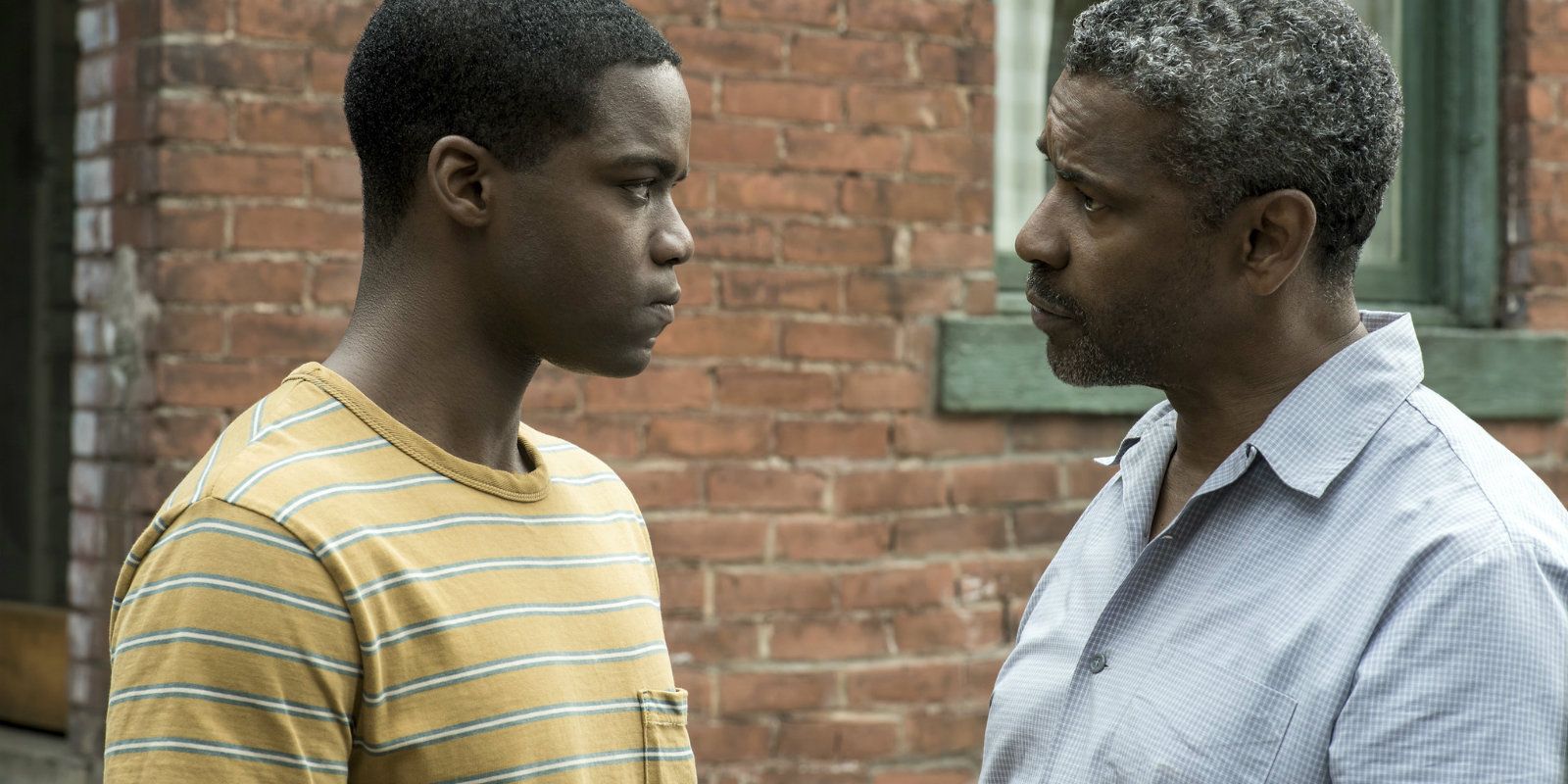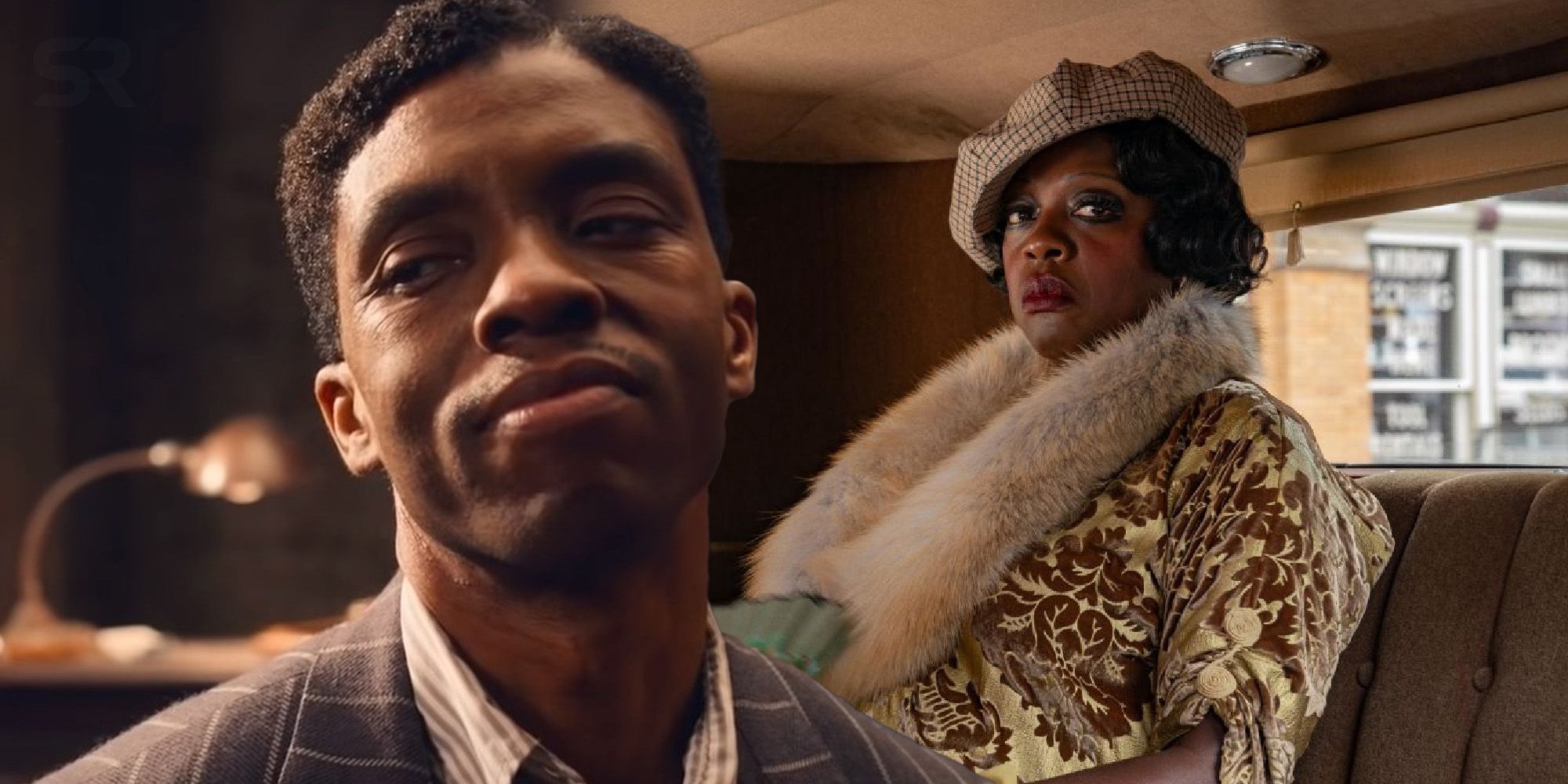August Wilson's 1982 play Ma Rainey's Black Bottom is getting a second life onscreen thanks to producer team George C. Wolfe and Denzel Washington, who are clearly fans of the playwright. Although the writer passed away in 2005, his series of plays have created a cultural impact that's lasted well into the 21st century.
August Wilson's work gave several famous Black actors their start on the stage. James Earl Jones, Courtney B. Vance, Angela Bassett, Samuel L. Jackson, and Laurence Fishburne have all taken on roles in Wilson's plays onstage. In fact, the stage was also the original home of silver screen titans Viola Davis (Ma Rainey's star) and Denzel Washington, who have since brought August Wilson's characters Rose and Troy to life in the film adaptation of another Wilson play, Fences. The play, which won the 1987 Pulitzer Prize, is considered one of the most lauded plays of the 20th century - as it explores themes of family, gender, responsibility, and limitations affecting Black community in the 1950s.
August Wilson has provided a foundation to express the many nuances of life as a Black person living in the United States. In an interview with CBS, Viola Davis had this to say of Wilson and his impact: "He captures our humor, our vulnerabilities, our tragedies, our trauma. And he humanizes us. And he allows us to talk." That's just what August Wilson set out to do from the very start of his career.
August Wilson's Early Life
August Wilson was born Frederick August Kittel Jr. on April 27th, 1945 in Pittsburgh, Pennsylvania. Life as a mixed-race Black family in America during that period was difficult, to say the least. The fourth of six children between a German immigrant father and Black American mother, Wilson was solely raised by his mother for his entire childhood. He would later take on her surname, Wilson, to write under. After his mother divorced his father, Wilson and his siblings were moved around to several neighborhoods in Pittsburgh, many of them hostile to the family's presence. However, many of Wilson's plays would be set in the area where the family originally hailed from: the Hill District.
From an early age, August Wilson showed great skill in writing. The future playwright had a talent for drawing up symbolism (like Levee's yellow shoes). His ability to articulate his thoughts was apparently so advanced that a teacher at Gladstone High School (the third high school that Wilson attended) accused him of plagiarizing a 20-page paper the future playwright penned on Napoleon I of France. The charge was so devastating to Wilson that he dropped out of high school shortly after, without his mother's knowledge, and took on several menial jobs at the age of 16. Wilson extensively frequented the Carnegie Library of Pittsburgh, which would later result in the library granting him an honorary high school diploma. When Wilson was 12, he began to read more Black writers, including Langston Hughes, Richard Wright, and Ralph Ellison, leading him to become a writer himself.
Common Themes in Wilson's Plays
The works of August Wilson express the many nuances, struggles, and joys of Black life in the United States. During the 1960s, Wilson was inspired by Malcolm X. The Black Power Movement (as well as the then-nascent Nation of Islam) deeply spoke to Wilson, who was drawn to its message of self-determination, self-sufficiency, and self-defense in the Black community. These themes of agency - and the social limitations that continually push against it - make up the core of August Wilson's work.
Wilson also valued representing the truth of everyday life in his plays. Though his plots do sometimes include large events that serve as the trigger for the rest of the action, much of what happens is actually pretty mundane on the surface. A choice as simple as Ma Rainey (who, in real life, was unable to read) in Ma Rainey's signing over the rights to her songs (on paperwork that she couldn't read, no less) or Troy in Fences telling Cory's football coach that he's no longer interested in playing football both have the power to affect the trajectory of multiple lives. At the same time, Wilson's work showcases playful conversation, small talk, and regular gossip just as much as these cataclysmic events. Perhaps this statement from Wilson himself, pulled from the New York Times, expresses his artistry best:
By looking at Troy's life, white people find out that the content of this black garbageman's life is affected by the same things – love, honor, beauty, betrayal, duty. Recognizing that these things are as much part of his life as theirs can affect how they think about and deal with black people in their lives.
The Playwright’s Continuing Influence
August Wilson's work has provided a window into Black life in America (as demonstrated in Ma Rainey's sountrack) and acted as a springing board for many other Black writers to launch their work from. His series of ten plays, called the Pittsburgh Cycle - or sometimes known as the Century Cycle - follows the Black experience in America spanning across the entire 20th century. Each play is set in a different decade, exploring the history of the Black community's advancements, accomplishments, and struggles in the United States. Every one of the plays in the Pittsburgh Cycle received a Broadway debut - which is a major achievement for any playwright in America.
The award-winning writer's success is not an anomaly. His plays speak to a part of Black American life that had been hardly (if at all) expressed before. Wilson's influence is so crucial to the development of American theatre that he has streets, parks, and buildings named after him. Even great Hollywood stars, like the late Chadwick Boseman, have taken on the challenge of bringing Wilson's multi-faceted characters to life. Tragically, Wilson's time in the theatre world was cut short. In June of 2005, the prolific writer was diagnosed with an aggressive form of liver cancer and only given three to five months to live. On October 2nd, 2005, August Wilson passed away. He was only 60 years old. Fourteen days later, officials moved to rename Broadways' Virginia Theatre after him, making it the first theatre to bear the name of an African-American.
August Wilson's impact on American culture and art spans far beyond the scope of Ma Rainey's Black Bottom. With several of Black artists preserving and revitalizing his work, the playwright's legacy is sure to live on for years to come.




